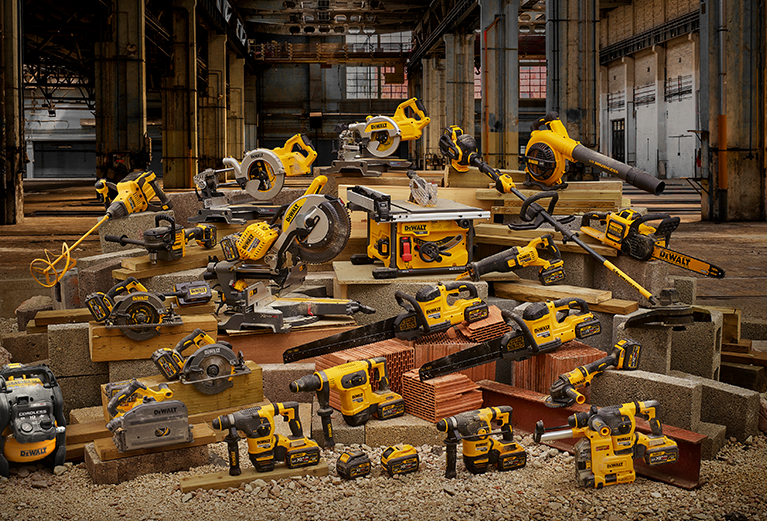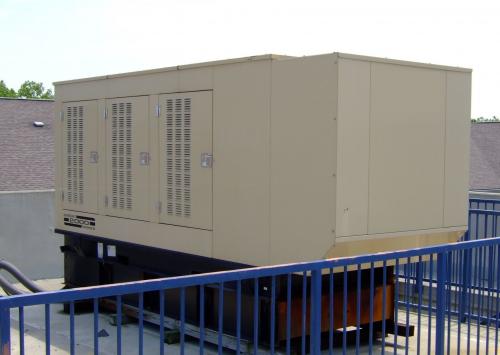Top Tips for Getting High-Quality DeWalt and Milwaukee Tools at Auction

Buying high-quality tools at a
reduced cost can be a game changer, especially when it comes to premium brands
like DeWalt and Milwaukee. These brands are well-known for their durability,
performance, and innovation, making them highly sought after by contractors,
DIY enthusiasts, and resellers. One cost-effective way to acquire these tools
is through pallet auctions, where bulk lots of tools can be purchased for
significantly less than retail prices. To ensure you get the best value, here
are the top tips for securing high-quality DeWalt and Milwaukee pallets
auctions.
1. Research Auction Platforms
Before you dive into bidding,
it's essential to research and choose reputable auction platforms. Not all
auction houses are created equal, and some may specialize in tool liquidation
while others cater to a broader range of products. Look for platforms that
frequently feature DeWalt and Milwaukee tools, such as specialized pallet
liquidation sites, industrial auctioneers, and even online platforms like
B-Stock, Liquidation.com, or local auction houses.
Tip: Check reviews, ask
for recommendations from industry peers, and verify the auction house’s
credibility to avoid scams or unreliable sources.
2. Understand the Types of Pallets
Pallets at auction can be
categorized into different types, such as customer returns, overstock,
shelf-pulls, or damaged goods. Each category comes with its own level of risk
and reward. For example:
- Customer Returns: These pallets may contain
tools that were returned for a variety of reasons, from minor defects to a
simple change of mind. They can be a good source of lightly used tools,
but inspect closely for quality.
- Overstock and Shelf-Pulls: These are often
the most desirable because they usually include new or unopened products.
- Damaged Goods: These pallets may require
repairs or be sold for parts but can still offer value if you have the
expertise to refurbish or repurpose the tools.
Tip: Always review the
pallet manifest or any available product listings to understand what items you
are bidding on.
3. Set a Budget and Stick to It
Auction excitement can lead to
overspending, so it’s crucial to set a budget and adhere to it. Decide how much
you’re willing to spend on each type of pallet and factor in any additional
costs such as buyer’s premiums, shipping, or taxes. This will prevent impulse
bidding and ensure you maintain profitability if you’re buying for resale or
business purposes.
Tip: Use a bidding tool or
software that allows you to place automatic bids up to a certain amount to help
keep your spending in check.
4. Inspect Pallets Whenever Possible
One of the key strategies for
getting high-quality tools at auction is to inspect the pallets before placing
your bid. If you’re attending a local auction, try to inspect the tools in
person. Check for signs of damage, wear, or missing parts. For online auctions,
look for detailed descriptions, photos, and any provided condition reports.
Tip: If photos and
descriptions are limited, reach out to the auction house for additional
information. Transparency is a good indicator of a reputable auctioneer.
5. Assess the Resale Value or Usability
If your goal is to resell tools
or use them for projects, understanding the potential value of the tools is
critical. Research current market prices for DeWalt and Milwaukee tools, both
new and refurbished. This can help you estimate how much you should bid and
what potential profit you could make.
Tip: Make a list of the
most sought-after tools from each brand to prioritize which pallets are worth
more aggressive bidding.
6. Familiarize Yourself with Auction Terminology and Rules
Different auction platforms have
varied bidding rules and processes. Familiarize yourself with the terminology
(e.g., “reserve price,” “buyer's premium,” “as-is”) and understand how the
bidding process works, whether it’s live, timed, or a hybrid format. Knowing
the auction structure will help you develop a more strategic approach and avoid
any misunderstandings that could affect your bidding.
Tip: Pay attention to any
penalties for retracting a bid or failing to pay, as these can lead to
suspension from future auctions.
7. Plan for Shipping and Logistics
If you’re bidding on pallets from
an out-of-town or online auction, plan for shipping and handling. These costs
can quickly add up, impacting your total investment. Compare different shipping
options, and where possible, consolidate shipments to reduce costs.
Tip: Some auction houses
offer in-house logistics services, which may be more affordable or convenient.
Be sure to confirm this before finalizing your purchase.
8. Participate in Practice Auctions
For those new to pallet auctions,
participating in practice or smaller-scale auctions can be an excellent way to
learn without risking a significant investment. This allows you to get
comfortable with the process, understand bidding strategies, and experience how
quickly prices can change.
Tip: Join online forums or
communities related to auction purchasing. Seasoned bidders often share
insights and tips that can be invaluable for newcomers.
Conclusion
Acquiring high-quality Milwaukee and
DeWalt pallets
for sale through auctions can be a cost-effective strategy if approached
with preparation and insight. By researching auction platforms, understanding
pallet types, inspecting items, setting a budget, and familiarizing yourself
with auction procedures, you can make informed decisions that maximize value.
Whether you're buying for personal use or resale, these tips will help ensure
you come away from the auction with high-quality tools at the best possible
price.








